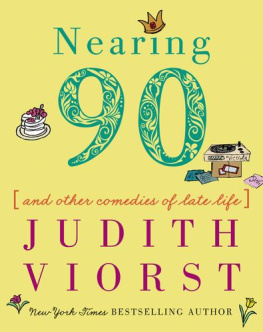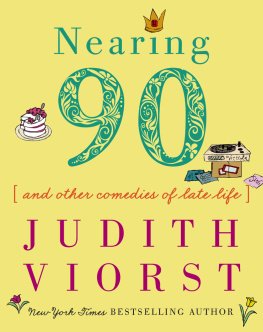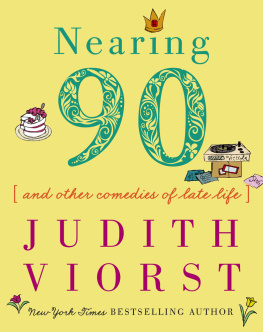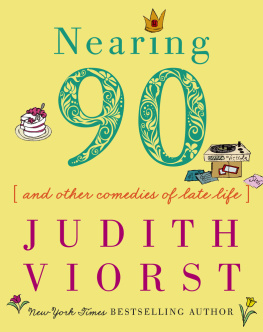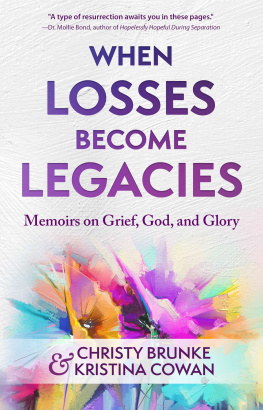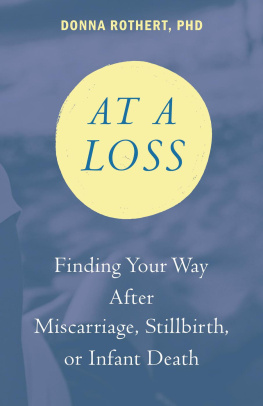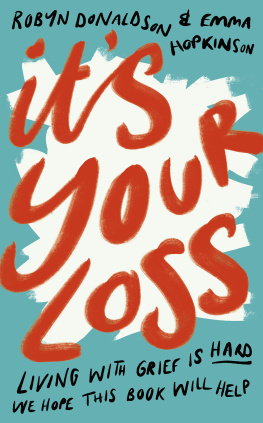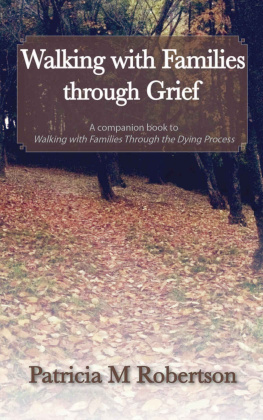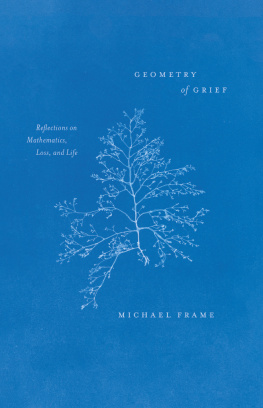Thank you for downloading this Simon & Schuster ebook.
Get a FREE ebook when you join our mailing list. Plus, get updates on new releases, deals, recommended reads, and more from Simon & Schuster. Click below to sign up and see terms and conditions.
CLICK HERE TO SIGN UP
Already a subscriber? Provide your email again so we can register this ebook and send you more of what you like to read. You will continue to receive exclusive offers in your inbox.
To my three sons
Anthony Jacob Viorst
Nicholas Nathan Viorst
Alexander Noah Viorst
 Acknowledgments
AcknowledgmentsThis is a book that was built on the wisdom and help of many people. I am enormously grateful to them.
I am grateful to the Washington Psychoanalytic Society and to its Institute, where I studied for six intellectually thrilling years; to Doctors Joseph Smith, Oscar Legault, Marion Richmond and John Kafka, for guiding me to, and through, the Institute; to the Institutes Mary Allen, Jo Parker and, most especially, Pat Driscoll, for helping mein the years I worked on this bookto track down countless elusive books and references; and to Dr. Donald Burnham, for small miracles.
I am grateful to my friend Silvia Koner for pointing me toward the theme of my book and to Dr. Louis Breger and Dr. Gerald Fogel for their immensely valuable critiques of my first draft.
I am grateful to the following psychoanalysts, who shared their expertise with me: Doctors Justin Frank, Robert Gillman, Pirkko Graves, Stanley Greenspan, Robert King, Susan Lazar, Glenn Miller, Nancy Miller, Frances Millican, Betty Ann Ottinger, Gerald Perman, Earle Silber, Stephen Sonnenberg, Richard Waugaman and Robert Winer.
I am grateful to the editors of Redbook magazine for providing me, for some eighteen years, with the opportunity to write about a wide range of human concerns, some of which are reflected in the pages of this book.
I am grateful to several friends who were involved with me in this book from beginning to endto Leslie Oberdorfer for reading and discussing my chapters with me as they came rolling hot off my word processor; to Ruth Caplin, Li Schorr and Phyllis Hersh for always being available to explore issues and offer encouragement; and to Dr. Harvey Rich for his intelligence, clarity and loving heart.
I am grateful to Maria Nio of the Cleveland Park Library for three years of gracious helpfulness.
I am grateful to my husband Milton and our three sons for their sustaining love and good will during my years of consuming involvement in research and writing; to my friend and agent Robert Lescher for, as usual, help and guidance far above and beyond the call of duty; to my editor Herman Gollob for his consistent supportiveness; and to Dan Green, who said lets do this book.
Finally, I am grateful to a great many people who cannot be thanked by namethe men and women and children whose experiences appear in this book and whose privacy I have promised to protect. Necessary Losses would not exist without them.
 Contents
Contents Introduction
IntroductionIt is the image in the mind that binds us to our lost treasures, but it is the loss that shapes the image.
Colette
After almost two decades of writing essentially about the inner world of children and adults, I decided that I wanted to learn more about the theoretical underpinnings of human psychology. I sought my education at a psychoanalytic institute because I believe that, with all of its imperfections, the psychoanalytic perspective offers the most profound insights into what we are and why we do what we do. At its best, psychoanalytic theory simply teaches us in another way what we have already been taught by Sophocles and Shakespeare and Dostoevsky. At its best, psychoanalytic theory offers us illuminating generalizations while maintaining an exquisite respect for the complexity and uniqueness of each of us astonishing human beings.
In 1981, after six years of study, I became a research graduate of the Washington Psychoanalytic Institute, which belongs to that international network of teaching and training institutes spawned by Sigmund Freud. During those years I also underwent an analysis and worked in several psychiatric settingsas an aide in a childrens psychiatric ward, as a creative-writing teacher for emotionally disturbed adolescents and as a therapist at two clinics doing individual psychotherapy with adults. It seemed to me that wherever I looked, both inside and outside of hospitals, peopleall of uswere struggling with issues of loss. Loss became the subject I had to write about.
When we think of loss we think of the loss, through death, of people we love. But loss is a far more encompassing theme in our life. For we lose not only through death, but also by leaving and being left, by changing and letting go and moving on. And our losses include not only our separations and departures from those we love, but our conscious and unconscious losses of romantic dreams, impossible expectations, illusions of freedom and power, illusions of safetyand the loss of our own younger self, the self that thought it always would be unwrinkled and invulnerable and immortal.
Somewhat wrinkled, highly vulnerable and non-negotiably mortal, I have been examining these losses. These lifelong losses. These necessary losses. These losses we confront when we are confronted by the inescapable fact
that our mother is going to leave us, and we will leave her;
that our mothers love can never be ours alone;
that what hurts us cannot always be kissed and made better;
that we are essentially out here on our own;
that we will have to acceptin other people and ourselvesthe mingling of love with hate, of the good with the bad;
that no matter how wise and beautiful and charming a girl may be, she still cannot grow up to marry her dad;
that our options are constricted by anatomy and guilt;
that there are flaws in every human connection;
that our status on this planet is implacably impermanent;
and that we are utterly powerless to offer ourselves or those we love protectionprotection from danger and pain, from the in-roads of time, from the coming of age, from the coming of death; protection from our necessary losses.
These losses are a part of lifeuniversal, unavoidable, inexorable. And these losses are necessary because we grow by losing and leaving and letting go.
This book is about the vital bond between our losses and gains. This book is about what we give up in order to grow.
For the road to human development is paved with renunciation. Throughout our life we grow by giving up. We give up some of our deepest attachments to others. We give up certain cherished parts of ourselves. We must confront, in the dreams we dream, as well as in our intimate relationships, all that we never will have and never will be. Passionate investment leaves us vulnerable to loss. And sometimes, no matter how clever we are, we must lose.
An eight-year-old was asked to provide a philosophical commentary on loss. A man of few words, he answered, Losing sucks. At any age we would surely agree that losing tends to be difficult and painful. Let us also consider the view that it is only through our losses that we become fully developed human beings.
Next page
